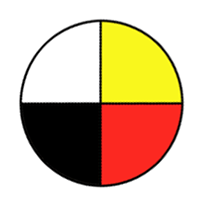Assess the impact of mental health on overall well-being of self, family, and community.
| (a) |
Reflect on and discuss personal and community beliefs and biases about mental health. |
| (b) |
Examine common misconceptions and negative stigmas/ connotations related to both the area of and the language of mental illness (e.g., misconception that an individual with a mental illness has a weak character or is inevitably dangerous). |
| (c) |
Consider ways to reduce stigma, address discrimination, and eliminate structural barriers related to mental illness. |
| (d) |
Describe, with information from a variety of mental health experts, the factors that contribute to positive mental health (e.g., involvement in extracurricular activities, belonging to a team/group). |
| (e) |
Discuss prior understandings of how thoughts, actions, and behaviours are all connected to brain function. |
| (f) |
Recognize that there is no single cause of any mental health problem or illness and no one is immune regardless of where they live, how young or old they are, or their social standing. |
| (g) |
Examine evolving theories about the complex causes of mental illnesses (i.e., social, economic, psychological, biological, and genetic factors). |
| (h) |
Assess the influence of mental well-being on each of the dimensions of wellness (i.e., psychological, physical, social and environmental). |
| (i) |
Investigate various personal, environmental, biological, and social influences (e.g., sports competitions, use of cannabis, support networks) on mental health and determine one's relationship to these influences. |
| (j) |
Determine why particular mental illnesses (e.g., anxiety disorders, depression, bipolar mood disorder, eating disorders, schizophrenia) are common in adolescence. |
| (k) |
Investigate the relationships between personal mental health and personal wellness (e.g., feeling well, functioning well and being resilient, making positive changes, being physically fit). |
| (l) |
Examine the relationships among defense mechanisms, feelings, behaviours, and mental health (i.e., ways we protect ourselves from things we do not want to think about or deal with). |
| (m) |
Examine the interconnectedness and interdependence of mental health and a variety of activities (e.g., leisure activities, competitive sports, physical activities, helping someone or some cause). |
| (n) |
Analyze mental fitness factors (e.g., placing things in perspective, using stress management strategies, cultivating and maintaining a strong sense of humour) as they relate to personal well-being. |
| (o) |
Evaluate, revise, and continue to implement a Personal Plan for Wellness based on new understandings about mental health. |

This Fifth Estate episode relates Fleury's remarkable story, the staggering fall from grace that cost him millions of dollars, his family and almost, his life. Fleury talks about how he struggled back from the brink of despair to become clean and sober and ready to help others. He candidly discusses the dark issues that haunted him during the glory years, including the sexual abuse he experienced as a teenager at the hand of the now notorious junior hockey coach, Graham James. Behind Fleury's public bravado was a man struggling with addictions to alcohol, drugs and sex. His candid and unsentimental recounting of those years and, finally, his vanquishing of his demons, will be an inspiration to many - a cautionary tale for others.
This video opens a dialogue for youth to be aware of these issues and to not feel as alone.




A teacher's guide is available.



The Guide includes six interactive web-based classroom-ready modules, a teacher self-study resource, lesson plans, print and video resources, PowerPoint presentations, evaluation options, and supplementary materials. It provides a complete set of educational tools proven to increase mental health literacy of both students and teachers. A one-day face-to-face professional learning session for classroom teachers, and a two-day train-the-trainer workshop for Guide workshop facilitators build capacity for program sustainability, regardless of jurisdiction. For more information visit: http://teenmentalhealth.org/schoolmhl/.


This web-based resource includes hyperlinks from the table of contents and embedded videos. Page navigation is described in a short user's video at the beginning of the resource.
Included are appendices for parent engagement, student engagement, a PowerPoint presentation on positive mental health and a brochure on positive mental health.



A teacher's guide is available.





